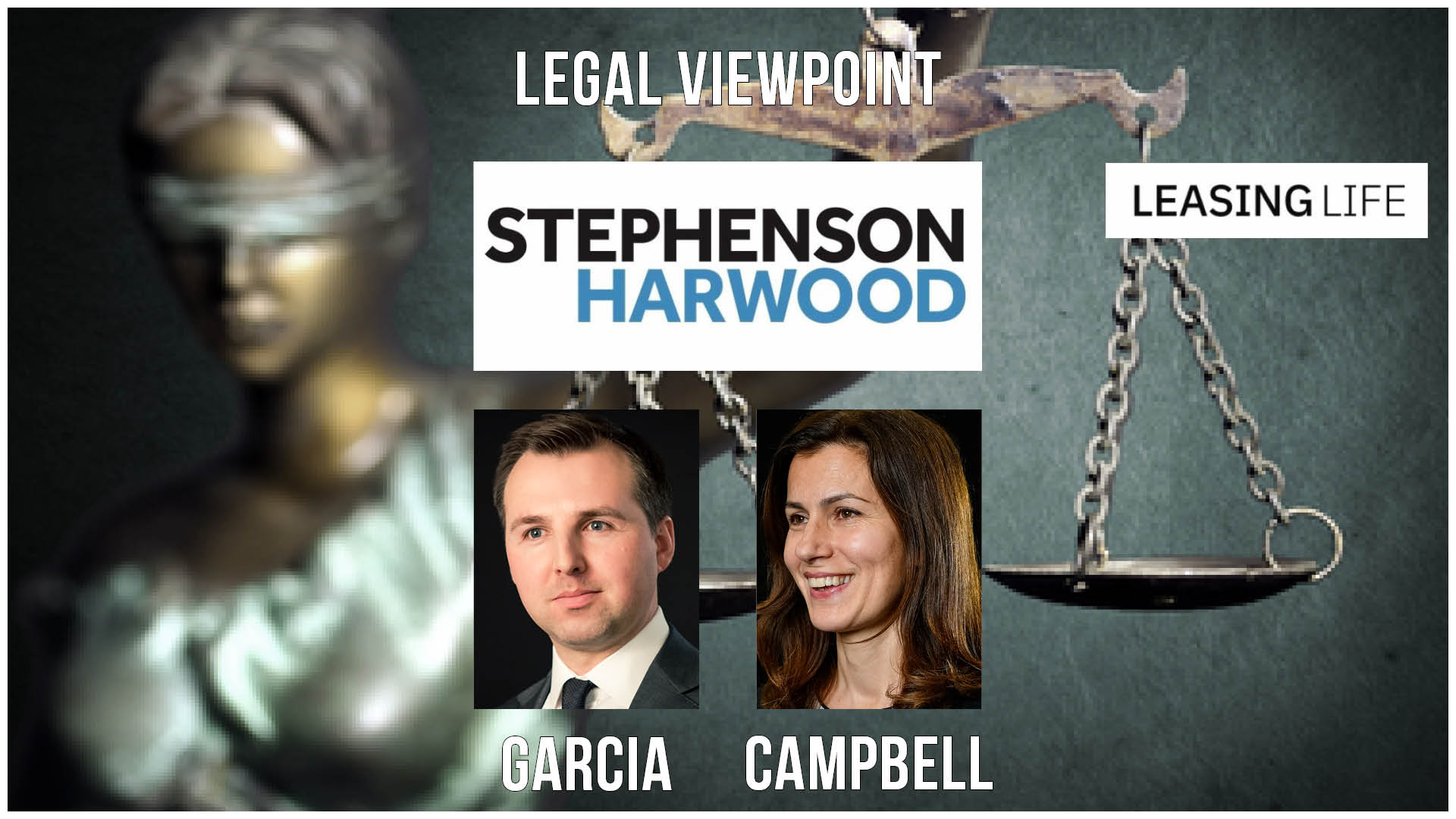
Richard Garcia and Harriet Campbell from the Stephenson Harwood finance litigation team look at the recent Court of Appeal judgement (Wood v Commercial First) and what it means for lenders and brokers.
The Court of Appeal[1] has ruled it is not necessary to find a fiduciary duty to grant civil remedies for the payment or receipt of a bribe or secret commission. In a decision of interest to lenders and brokers alike, the court has clarified the wide-ranging circumstances in which a borrower can recover a secret profit or rescind an agreement as a result of an undisclosed commission. The judgment has also clarified the level of disclosure necessary for a commission to be deemed “half-secret”.
Wood v Commercial First
Decisions under appeal
This appeal concerned two cases relating to the law of secret and half-secret commissions and bribery. The background to both cases was similar and involved the same broker. Mrs Wood and Mr Pengelly (the “Borrowers”) had obtained loans secured against their properties. Their broker had received commission from the relevant lender in each case (the “Lenders”) which had not been disclosed. The Borrowers had subsequently defaulted on the loan repayments. The Lenders (to whom the loans had been assigned for securitisation purposes) commenced enforcement proceedings and the Borrowers brought counter-claims for rescission and for recovery of the payments as secret profits.
The availability of the remedy of rescission was, understandably, of particular importance to the Lenders and was the focus of the appeals. In addition to the question of whether the broker was liable in relation to the commission payments, a separate question arose as to whether the Lenders could be liable if there was no fiduciary relationship between the broker and the Borrowers.
At first instance, in Wood v Commercial First, the court found in Mrs Wood’s favour and rescinded the mortgage. In Business Mortgage Finance 4 Plc v Pengelly, at first instance the county court rejected Mr Pengelly’s defence and counterclaim for rescission in its entirety. On appeal to the High Court, however, the claim for rescission was granted. The Lenders both appealed.
Although the two High Court judgments reached the same conclusion, the underlying reasoning adopted was different. In Wood v Commercial First, the court concluded that it was not necessary to find a fiduciary relationship between the borrower and the broker to find liability for the secret commission whether on the part of the broker or as against the lender. By contrast, in Business Mortgage Finance 4 Plc v Pengelly, the court held that a fiduciary relationship was a necessary pre-condition to any relief against the lender (i.e. the payer of the alleged secret commission).
How well do you really know your competitors?
Access the most comprehensive Company Profiles on the market, powered by GlobalData. Save hours of research. Gain competitive edge.

Thank you!
Your download email will arrive shortly
Not ready to buy yet? Download a free sample
We are confident about the unique quality of our Company Profiles. However, we want you to make the most beneficial decision for your business, so we offer a free sample that you can download by submitting the below form
By GlobalDataIn both cases, the court found that a fiduciary relationship existed on the facts. That finding (and the reasoning on liability where no fiduciary relationship existed) was challenged on appeal by the Lenders.
Fiduciary relationship
The precise scope of a broker’s duty will vary according to their terms of engagement. Following a review of the authorities, however, the court held that the following principles apply:
- It is not necessary for a fiduciary relationship to exist to find civil liability for the payment of bribes or secret commissions. The only test the court need apply is whether or not the payee was “under a duty to provide information, advice or recommendation on an impartial or disinterested basis”. The court also summarised it as “the duty to be honest and impartial”.
- This means that liability for the payment of secret commissions can exist within a broad range of relationships involving contractual or other duties to provide information, advice or recommendations (including, for example, a lawyer’s relationship with its client).
- A fiduciary duty between the principal and the agent (using those terms broadly) is not a precondition to the remedy of rescission as against the third-party payer of the secret commission. In particular, “[none] of this depends on establishing that the third party is an accessory to a breach of fiduciary duty by the payee“.
- Although not necessary (given the above reasoning), the Court of Appeal found that the broker’s relationship with the Borrowers was, in fact, a fiduciary one. The broker had been under a duty to make a “disinterested selection” to its clients and, despite the existence of a term stating that the broker might receive commission from lenders, it owed a fiduciary duty of loyalty to its clients[2].
Remedies
The Court of Appeal, therefore, confirmed that if liability for the payment of a secret commission or bribe is found on the principles above, both the payer and payee have primary liability. However, the court did not explain how it is that a third-party payer of a commission has primary liability in circumstances where it will not necessarily know if the commission has been paid in “secret”. This is likely to be an issue that will need to be resolved in future cases.
Remedies for bribery (or the payment of a secret commission) are available in both common law and equity. These remedies include:
- Money had and received (i.e. recovery of a sum equal to the amount of the secret commission) as against either payer or the payee; or
- Damages for fraud relating to any loss suffered (against the payer or the payee); and
- Rescission as of right, subject to making counter-restitution.
The Court of Appeal specifically held that rescission (in fully secret commission and bribery cases) is available at equity and common law – in addition to recovery of the sum paid as money had and received.
Half-secret commissions
The commissions, in this case, were found to be fully secret, not half-secret (‘half-secret’ being a phrase used to describe instances where a borrower knows, or should know, that a fee is being paid to the broker but does not know the amount[3]). The court dismissed the Lenders’ argument that a clause in the broker’s terms and conditions referring to the possibility of a fee being paid, rendered the commissions half-secret.
The clause further provided if a fee were to be paid, the broker would inform the borrowers in writing in advance. No such notice was provided and the Court of Appeal concluded the commissions were fully secret. Obiter, David Richards LJ (giving the leading judgment) observed that in order to rely on the clause in any event, the broker would have had to draw their client’s attention to it.
Although not expressly addressed by the Court of Appeal in this case, previous authority provides that where a commission is only half-secret, rescission is not available as of right – although it remains a possible remedy at the court’s discretion.
Implications for lenders
This decision will have particular relevance to lending arrangements that fall outside of what is traditionally understood to be a fiduciary relationship. For civil law remedies in relation to secret commissions to be available, the court noted “it is enough… that the person who is offered or paid a secret commission is…‘someone with a role in the decision-making process in relation to the transaction in question e.g. as agent’”.
The judgment also makes it clear that fully undisclosed commissions leave lenders and brokers exposed not only to liability for damages and/or repayment of the commission, but rescission of the underlying loan (subject to counter-restitution). This appears to be the case even where the lender is not aware that the commission is ‘secret’, although that is an issue that is likely to be argued in future cases.
For assignees of loan portfolios in particular, who necessarily have limited visibility of the origination process, this is a key takeaway point. An evaluation of the risk of undisclosed commissions will be an increasingly important element of the due diligence process in any portfolio acquisition and specific advice should be taken before any enforcement action is taken.







